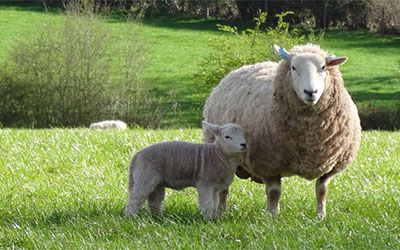Recent Stories
- Businesses urged to tap into science and technology young talent
- Digital relay baton enables remote crowd cheering of athletes
- Health Innovation Campus moves a step closer
- £7.1 million R&D boost for North West businesses
- Centre of excellence created for the next industrial revolution
- Artificial intelligence toolkit spots new child sexual abuse media online
- Strategic partnership set to help plug cyber security skills gap
- What your choice of smartphone says about you
- InfoLabTree: Discover the Story
- novi.digital Launch Event - 'An Event to Help Businesses Grow Online'
RSS Feeds
RSS feeds can deliver the latest InfoLab21 news and events direct to your browser without you having to visit the website.
In most browsers you can click on an RSS link and choose to subscribe to the feed to add it to your favourites or bookmarks.
Move over smart cities – the Internet of Things is off to the country
Story supplied by LU Press Office

Lancaster University is about to take the concept of smart cities out of town.
The Internet of Things - which enables object-to-object communication over the internet and real time data monitoring - has typically been associated with urban environments and until now the countryside has been left out in the cold.
Computer scientist Professor Gordon Blair of Lancaster University has won £171,495 from the Engineering and Physical Sciences Research Council to lead a new project in Conwy, North Wales, which will investigate how the Internet of Things could work in the countryside.
Working with partners at the Centre for Ecology and Hydrology, The British Geological Survey and Bangor University, the project launched on December 1 and will run for 18 months.
Problems from flooding and agricultural pollution to animal movements and drought could all potentially benefit from smart technology in the sticks.
The Internet of Things, which takes everyday objects and hooks them up to the internet, represents a shift in the way we gather and engage with information. Applying this booming technology to the countryside presents challenges – for example how to build a network when there are mountains and trees in the way – but researchers believe the benefits could be huge.
Sheep with digital collars, sensors on riverbanks, rainfall and river flow monitors could all soon form part of the project.
Professor Blair said: “Cities have been the focus of much of the boom in this type of technology – it has been used to keep traffic flowing on our roads, monitor air pollution and even help us find a parking spot on a busy Saturday afternoon. But the countryside faces challenges of its own, from subtle environmental changes to catastrophic events such as flooding. The possibilities of bringing the Internet of Things to the countryside are limitless. The next step will be to identify exactly what will be of most use in the shor
Tue 09 December 2014



